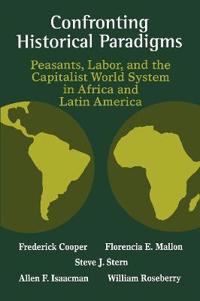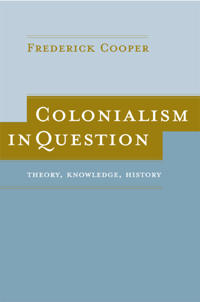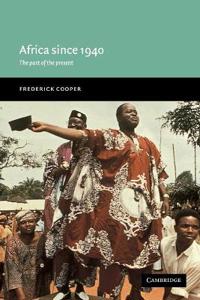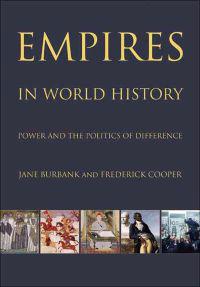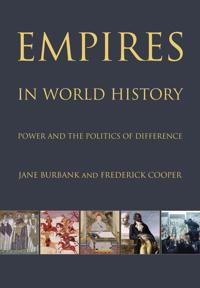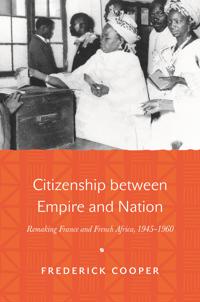Confronting Historical Paradigms (Häftad)
avFrederick Cooper
ISBN: 9780299136840 - UTGIVEN: 1993-08"Confronting Historical Paradigms" argues that confrontation with major paradigms of world history has marked the fields of African and Latin American history during the last quarter-century and that the process has dramatically restructured historical and theoretical understanding of peasantries, l[...]
Colonialism in Question (Häftad)
avFrederick Cooper
ISBN: 9780520244146 - UTGIVEN: 200506In this closely integrated collection of essays on colonialism in world history, Frederick Cooper raises crucial questions about concepts relevant to a wide range of issues in the social sciences and humanities, including identity, globalization, and modernity. Rather than portray the past two centu[...]
Africa since 1940 (Häftad)
avFrederick Cooper
ISBN: 9780521776004 - UTGIVEN: 200210Frederick Cooperâs latest book on the history of decolonization and independence in Africa initiates a new textbook series: New Approaches to African History. This text will help students understand the historical process out of which Africaâs current position in the world has emerged. Bri[...]
Empires in World History (Inbunden)
avJane Burbank, Frederick Cooper
ISBN: 9780691127088 - UTGIVEN: 201004Empires - vast states of territories and peoples united by force and ambition - have dominated the political landscape for more than two millennia. "Empires in World History" departs from conventional European and nation-centered perspectives to take a remarkable look at how empires relied on divers[...]
Empires in World History (Häftad)
avJane Burbank, Frederick Cooper
ISBN: 9780691152363 - UTGIVEN: 201107Empires - vast states of territories and people united by force and ambition - have dominated the political landscape for more than two millennia. "Empires in World History" departs from conventional European and nation-centered perspectives to take a remarkable look at how empires relied on diversi[...]
Citizenship between Empire and Nation (Inbunden)
avFrederick Cooper
ISBN: 9780691161310 - UTGIVEN: 2014-07As the French public debates its present diversity and its colonial past, few remember that between 1946 and 1960 the inhabitants of French colonies possessed the rights of French citizens. Moreover, they did not have to conform to the French civil code that regulated marriage and inheritance. One c[...]

